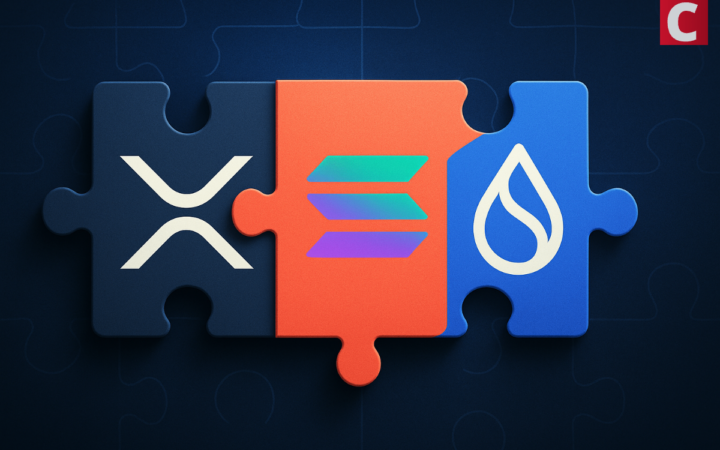
Facebook’s launch of its stablecoin, Libra, is the flagship example of a changing narrative in social media – privacy and monetization.
The bridge connecting Facebook’s successful business model and its massive user base has traditionally been advertising revenue, which amounts to the vast majority of the firm’s overall revenue. However, concerning data scandals and abuse of its control over user information have led to an outcry by its users and investors alike, and subsequent public sessions convening in front of Congress.
Power ‘Back’ to the People
Advertising has been the prevailing monetization model for major digital data monopolies over the last 15 years, but that is changing. Couple that trend with the rising power of social media influencers, who want a bigger piece of the revenue pie, and an interesting discussion around the next iteration of the social media industry develops.
Enter Vid, a blockchain and AI-based social media platform that is changing the social video landscape. With over two and a half years spent on development and a strong understanding of what where the social media market is heading, Vid puts its users at the heart of their platform, providing them with full privacy control and monetization opportunity unlike any platform that is in the mass market today. Vid users, and influencers alike, will retain 100% of the ad revenue that their public video is responsible for.
Privacy is at a Premium
Facebook’s problems begin with concerns over privacy. Recent statements from Mark Zuckerberg have indicated that the social media giant wants to transition to a more privacy-oriented business model, but that directly conflicts with its current ad-based business model. Their proposed solution? Build a global payments network with some of the top tech, investment, and payments firms acting as the node operators.
In what is estimated to potentially bring in $1 billion in revenue, Libra is a bold move that actually is congruent with Facebook’s subsidiaries, like the WhatsApp messaging app. What’s clear is that if Facebook is seeking a significant overhaul in its business, then they are clearly influenced by what they see as a changing landscape – the premium that people are now placing on privacy – and its effects on its ad model.
Vid understands this trajectory well and has taken the concept even further, blending user video content with privacy encryption and a blockchain-based ad revenue model that preserves both user privacy and income.
That product is Vid, a short-form video sharing application where AI auto-generates videos synced to user-chosen music – a montage of historical videos customized with professional editing tools. The best part is that users have complete control over their data, which is encrypted with an innovative technique called zero-knowledge proofs (ZKPs), which are the basis for privacy-oriented cryptocurrency networks like ZCash.
Users can selectively reveal their personal videos publicly and to the brand advertisers, they associate themselves with. No selling of sensitive data to third-parties is allowed, and snooping by malicious hackers isn’t possible. Another downstream consequence is the potential for monetization, by users and influencers.
“Users can include branded advertisements with their auto-generated memories that they choose to share publicly,” says Vid Co-Founder and CEO, Jag Singh. “As a result, users will receive the created revenue by enabling a swipe-up advertisement link on their public videos; we do not take a cut.”
The monetization is facilitated by Vid’s app that’s built on top of blockchain technology, and the ZKPs act as a user’s instrument to selectively determine the videos that go into their public feed. It’s a powerful shift in the leverage over data, and the actual social media innovation – short-form memory media – is a blossoming market in itself.
A Huge Market Opportunity
Snapchat and Youtube’s meteoric rises were an early sign that video content consumption was soon to become the dominant form of media content.
“Generation Z grew up with smartphones,” says Jag. “Consistent research reveals that nearly half of them are constantly online and browsing visual content mediums.”
Singh’s observations ring true, as a Pew Research study indicated 45 percent of teens identifying as being online on a near-constant basis, and video content is expected to comprise nearly 80 percent of all web traffic over the next year. In particular, the market for short-form video content is exploding.
Platform’s like TikTok, a short-form video content app coupled with background music, has skyrocketed to the top of app charts with a slew of early-stage social media apps just behind it.
Vid takes the market for short-form video, expands it, and throws some privacy in the mix to converge two prevailing preferences among users into a one-all product. The AI used in Vid can automatically curate and source music into clips for users based on their experiences, so they never forget their favorite memories.
As opposed to Snapchat, where the novelty was in the “disappearing” videos that people falsely assume are private, Vid broaches lasting video content, backed by cryptographic primitives that ensure the data is truly private.
It’s a unique concept in an evolving landscape, and something to take a measure of as Facebook dabbles into the world of cryptocurrencies and the premium placed on privacy surges.






